How to Advocate for Child Life Support in Your Child’s Medical Care
Monday February 14, 2022
Parenting children through retinoblastoma is tough. Being their chief advocate is one of your most important roles throughout their cancer experience. Rb Survivor and WE C Hope CEO, Abby White, discusses why parents and caregivers should advocate for child life support, how to ask for child life services, and how to work effectively with child life professionals for the best outcomes.
Kenyan Child Life Specialist, Jayne Kamau, distracts an anxious patient during IV cannulation.
What Does Advocating Mean?
As your child’s parent or caregiver, you know them better than anyone else, so you are their most important voice on their medical care team. You are their chief advocate on this retinoblastoma journey, just as you are in other areas of their young life.
Advocating means you speak up, assist, and take action on your child’s behalf to support their needs. You have specific rights to advocate for their needs in healthcare. For example:
- The right to ask questions, to ask that explanations be repeated or given more clearly.
- The right to be fully involved in all decision-making about treatment and care.
- The right to read evidence supporting recommended treatments.
- The right to read the full research protocol for a clinical trial you are considering.
- The right to ask for a second opinion, see another doctor, and change hospitals.
- The right to receive psychological support to aid healthy coping.
Children going through retinoblastoma screening, diagnosis, and treatment are rarely able to speak for themselves. They don’t understand what is happening, or why, and though they have many ways of expressing their feelings and opinions, those messages are often only understood clearly by their primary caregivers. Advocating means being vulnerable alongside your child, to ensure their cry for help is heard.
4 Ways Child Life Can Help
Advocacy can help quell overwhelming feelings of helplessness that arise when your child is struggling with their retinoblastoma experience. Knowing who can help and how is the first step towards effective action.
Child life professionals are highly skilled individuals who help children of all ages and their families cope with medical experiences and traumatic life events. They work in many settings where children experience stress and trauma. In hospitals, they work in inpatient and outpatient units, and specialty areas like emergency, oncology, surgery and intensive care.
Caring for the whole child, they promote effective coping through preparation, education and self-expression activities based on natural child development. Even the tiniest babies can benefit from techniques like infant massage and comfort positions.
Since a child’s welfare depends significantly on the family’s wellbeing and support, child life specialists also educate, inform, support, and guide parents, siblings, and other relatives. They may also work with schools to support a new or returning student or their supporting/bereaved friends, and with the wider community to enable general support and advocacy.
Around the world, child life specialists are known by varied titles, including “hospital play specialist”, and “child life therapist”. WE C Hope uses the title Child Life Specialist, as this is most widely recognized worldwide.
Here are four key ways they can help your child and family.
1. Education and Preparation
Children experience many repeat procedures during retinoblastoma care. They can quickly become overwhelming for both the child and parent if not handled with sensitivity and understanding. Lack of preparation, planning and support can lead to loss of trust, poor cooperation, delayed development and potentially life-long negative effects.
Child life specialists provide compassionate education, preparation, and direct support to help the child and parents effectively cope with, and be actively involved in their care. The goal of child life is maximum time spent on preparation, minimum time spent on the actual procedure, and minimal distress for parent and child.
Parents cannot advocate effectively for their child when they don’t clearly understand the hospital environment, its people, or language; are confused or fearful about the diagnosis, treatments, and medical procedures; or remain unaware of factors that may affect wellbeing.
Child life specialists provide information and education to parents, siblings and other family members. They help children and their families feel emotionally comfortable, keep them informed about specific aspects of the diagnosis and treatment plan, answer questions, and support both child and family to advocate for themselves.
Child life specialists:
- Familiarize child and family with the hospital environment.
- Clarify the different titles, roles, and hierarchy of hospital staff.
- Educate about the medical diagnosis and planned treatments.
- Provide preadmission and pre-surgery hospital tours and resources.
- Provide pre-visit consultations with outpatient families.
- Use non-medical preparation for tests, procedures, surgery, and treatments.
- Facilitate medical play using special dolls, stuffed animals and medical equipment.
- Prepare child and family for changes in physical appearance and/or abilities arising from the medical condition and/or its treatment, with healthy coping supports.
- Educate parents in how to care for, support, and advocate for their child.
- Develop procedure coping plans with the child and parent.
2. Support Healthy Coping and Development
Intensive treatments, invasive medical procedures, long hospital days, family separation. These are unavoidable when a child has retinoblastoma, or a risk for developing the eye cancer. But the young patient and their siblings are still, first and foremost, developing children who need a healthy, supportive environment in which to grow and thrive.
Play is the language, university and business of childhood. Children learn, interact with their world and process their experiences through play. Child Life cares for the whole child, and play is the best way to help children cope with and thrive through their medical experiences.
Play is a diversion from hospital stress. Play is a distraction during difficult procedures, and a learning tool to educate, prepare and empower the child. Play helps caregivers assess a child’s emotional state, identify anxieties and fears, and teach coping skills.
In short, play helps the whole child heal.
Child life specialists:
- Support established routines, healthy bonding, and family life within the hospital.
- Facilitate and promote opportunities for normal childhood play in hospital.
- Organize special events, entertainment and activities that promote development
- Provide relaxation training, coping support, and distraction activities.
- Facilitate self-expression activities to help children explore their feelings.
- Organize and lead sibling support programs to aid healthy coping.
- Provide end-of-life and grief support (including the loss of an eye).
3. Collaborate and Advocate
Child life specialists collaborate with the full multi-disciplinary team, including doctors, nurses, social workers, psychologists, occupational therapists and physical therapists. They are a professional voice for the concerns and holistic needs of both the child and their family. They aim to share relevant information with the entire care team, and advocate approaches that incorporate emotional support. They liaise with the medical team to support the child and family before, during, and after potentially stressful events, to encourage healthy coping.
Child life specialists:
- Champion child-friendly approaches and family-centred care.
- Work closely with both the family and medical professionals to minimize stress.
- Support, and advocate for the roles of both patient and family in the medical care team.
- May accompany a child to their procedure and provide hands-on support.
- Deliver non-pharmacological pain management.
- Help parents prepare for difficult conversations with a medical professional, or with their child, about the diagnosis, aspects of care, or something else.
4. Provide Information and Resources
Many additional resources and support services may be available, both within the hospital and in the community. Child life specialists will signpost children and their families to these opportunities, facilitate access, and advocate adaptation where necessary.
Child life specialists:
- Distribute resources to families, and review the content of noticeboards and print materials with blind or visually impaired parents.
- Identify resources and services available to their patients in the community.
- Provide information about, and referral to, hospital-based tutoring programs for school-age children.
When to Advocate for Child Life Services
Before Medical Procedures
Children cope best with unfamiliar and potentially traumatic experiences when they are well supported. Their wellbeing is vital to their complete healing, and they have the right to compassionate, honest education, preparation and support. As their chief advocate, you can support their wellbeing by asking that child life supports be incorporated whenever your child requires medical care. For example:
- Oncology and Eye Clinic care
- All aspects of EUA Day care
- Diagnostic and treatment procedures
- Inpatient admissions and Outpatient visits
- Emergency Room care
During Procedures
Follow Your Gut. Your child’s medical team knows retinoblastoma, but you know your child, whether or not they are coping, and when you need to intervene on their behalf. As chief advocate, you have a responsibility to ensure everything is being done to support your child in the best possible way through their medical care. If you are concerned about their emotional wellbeing or ability to cope during a procedure, never be afraid to speak up. You would do so in any other arena of their life, and you have this right as their parent in the hospital too.
Advance planning is always better than the potential distress and confrontation of advocating help for an overwhelmed and unsupported child during a procedure. However, if a procedure is going very badly, your overwhelmed, frightened child cannot speak for themselves. They need you to be their courage and voice, to acknowledge that more can be done in this moment to support them, to speak up and say “stop”.
Explain your concerns as calmly and respectfully as possible, highlighting the signs in your child that alert you to their distress. Using phrases like “I feel…” rather than “you are…” will be less confrontational. Ask for a five minute break so you can soothe and prepare your child. Ask that adjustments be made so you can support your child more effectively, or that a child life specialist be called in to provide additional guidance and support.
If your request for appropriate psychological support is dismissed, ask again. Unless your child’s life is in immediate danger, you have the right to refuse or retract consent for the procedure until you are satisfied that their mental health is appropriately supported.
After Procedures
Discuss with your medical team and the child life specialist what went well with the procedure and what issues arose. Identify supports and other actions that can improve the experience for you, your child, and the professionals involved next time, and note them in your procedure support plan.
Plan with the child life specialist to practice and develop relevant coping tools. Liaise with the care team to ensure appropriate supports meeting your child’s needs are incorporated into future medical procedures.
A mother uses a back-to-chest comfort position, close visual contact, and One Voice of calm reassurance to support her daughter during port access.
The mother uses a positive touch hand hold, close visual contact, and One Voice of calm comfot to support her daughter during anaesthesia induction.
How to Advocate for Child Life
Contact Child Life Directly
If the hospital has child life specialists on staff, you will usually find them in the clinic or ward playrooms. If there is no play room, and/or the unit does not have a permanent child life specialist on staff, contact the child life service directly, or ask your child’s nurse to do this.
Ask for a Referral
Sometimes, child life specialists will only be called to assist directly with your child if they are having difficulties cooperating with a medical procedure of with staff. However, child life is most effective if intervention can anticipate and prevent difficulties. So don’t be afraid to ask for a consultation even when your child seems to be coping well. If your child is struggling with their medical experiences, chances are the child life specialist will be exactly the help you need.
Discuss Child Life at Rounds
When your child is inpatient, their lead doctor and other medical professionals involved in their care will gather at their bedside each morning for “rounds”. They will review your child’s medical status now and in the last 24 hours, and as part of this assessment, should ask you how you think your child has been fairing. They will discuss recent treatment, and plan treatment for the next 24-48 hours, and should again invite you to be involved in this planning process.
As your child’s chief advocate, Rounds is your best opportunity to ask questions, raise concerns, make suggestions, and request action to enhance their care and welfare – and yours. Ensure you understand who is leading your child’s immediate care, and what’s being discussed. If you are not happy with any element of the care plan, or you believe your child’s wellbeing can be improved, this is a key time to speak up.
Rounds can be intimidating and confusing for parents, with a large group of medical professionals and students (if a teaching hospital, as retinoblastoma and paediatric oncology centres usually are). If necessary, work with the child life specialist to increase your knowledge and practice calming techniques so you can advocate with more confidence and authority.
Find Your Expert
Although all child life specialists are highly skilled professionals, they have varied interests and areas of expertise. For example, they may become particularly skilled in early years care, teen health, emergency medicine, imaging, a specific diagnosis, or supporting children with a particular disability.
Try to seek out a child life specialist who can meet your child’s specific needs. This may not always be a child life specialist within the unit on which you are receiving care. Ask the child life specialists themselves for recommendations. Talk with the nurses and doctors, and with other parents, to find out who may be best positioned to help. Call the child life service, and discuss your specific needs with the program co-ordinator.
No Child Life Specialist
Child life is now an established part of paediatric healthcare in developed countries, but it is still missing from most low and middle income countries, and from many paediatric services delivered at adult hospitals in developed countries. Significantly for our retinoblastoma community, child life is frequently absent from ophthalmology services, both in adult and paediatric treatment centres.
Don’t worry if you discover the hospital or unit has no child life specialist. Child life approaches can be used by parents, doctors, nurses, social workers, and others. Anyone who cares about the wellbeing of the child can learn many simple techniques to provide highly effective support.
The child life section of this website, and child life category in our blog contain many practical guides to help parents and professionals more effectively support the child in medical care and their siblings. Some are general approaches. Others address specific procedures or experiences. All are fully accessible to you and your medical team, requiring minimal resources.
When a medical professional offers their hands to a young patient with sight-loss before initiating any physical contact, they help the child build a sense of safety, trust, confidence, and empowerment.
Simple massage techniques can help calm an anxious child before, during and after a medical procedure; manage pain; build trust, increase bonding between parent and child; and so much more.
How to Work Effectively with Your Child Life Specialist
Be Open
During a consultation, the child life specialist will discuss your child’s needs and yours as their parent and chief advocate. They will also ask about previous medical experiences, with particular focus on how you and your child coped, because previous experiences will affect how both you and your child cope now.
The child life specialist can help you most effectively when they clearly understand what your family has experienced, and is experiencing now, and what you need. Sometimes it can be hard to identify what you really need when you are over-tired, confused, stressed, and scared. Simply be open to conversation with the child life specialist – they are experts in supporting families, and may know how to help even before you have identified what you need.
Ask Questions
Child life specialists can help with many aspects of the medical experience, and advocate on your behalf. But they work best when you ask questions that enable them to help you understand and be a strong advocate for your child. Even if you think your query sounds silly, or you already asked, never be afraid to ask questions – your child life specialist will welcome them. Some types of questions child life specialists receive include:
- Who’s who? / What do they do?
- What does that mean? (medical terms)
- Why do they do that? (may refer to medical professionals or children)
- What will happen? (may refer to procedures, side effects, end of life care etc.)
- How can I help my child?
- How can you help us with…?
- Can you explain that / show me again?
- Where can I learn more / find out about…?
Be Willing to Learn, Practice, and Try Different Things
The child life specialist can teach new skills, so your child can cope better and you can be their effective support and advocate. For both children and parents, repeated practice is needed to build mastery and confidence, especially when they have already learned to fear medical procedures. Also, an approach that helps one child may not work for another.
Be patient. Work together with your child life specialist to explore different supports, and regularly practice the techniques you learn. Incorporate opportunities for medical play into regular playtimes, and frequently help your child practice coping skills and the different steps involved in specific medical procedures. Meet with the child life specialist often to discuss progress, identify issues, and explore and necessary adaptations or alternative techniques.
Be Hands On
Be actively involved in sessions with the child life specialist. If you need to, ask for this inclusion. Child life specialists are skilled professional advocates for children in hospital, but they are also trained to empower you as your child’s chief advocate. Your child needs your hand, your comfort hold, your hugs, and your soothing one voice.
When you help with your child’s care, your involvement can give more comfort than a professional doing the task, or when they do it alone. The child life specialist can help you practice skills and strengthen your confidence to be involved in daily care and medical procedures in hospital, and prepare for taking the lead in home care.
If you are concerned about how to provide safe, supportive daily care; or unsure about how you can be involved in medical procedures, ask the child life specialist for guidance. They will help you brainstorm adaptations for you and your child, and work with other professionals to ensure you are educated, trained, and involved as much as possible.
Prepare a Coping Plan
No one knows your child better than you. If specific healthy supports soothe your child and may help them cope during stressful experiences, share them with the child life specialist. They can help you build on those approaches, incorporate them into an effective coping plan, and advocate its use with the wider care team.
You may not think you need to prepare a coping plan, or write it down, but this document can enable support at all procedures, even when you are absent. For example, if you are unwell and someone else brings your child to the hospital. Also, in an emergency, or when you and/or your child are very distressed, it can be hard to remember or quickly convey the information.
Take Care of Yourself
Caring for a child with retinoblastoma in treatment is all consuming. If you are not sleeping, eating, or taking breaks, you will not be able to care for your child. Exhaustion will affect your ability to handle even trivial things, and if you become sick, you may not even be able to be with your child in hospital.
Children are sensitive to stress in their environment, and take cues from their parents. They are more likely to be distressed when their parents are run-down and anxious.
Self-care is one of the best ways you can advocate for your child.
Work with the child life specialist to identify small actions you can build into your home and hospital routines to help you cope. During inpatient admissions, accept their offer (or ask if needed) to sit with your child while you take some exercise, have a shower, run some errands, or go home for a few hours to visit the rest of your family.
Acknowledge that you are in a tough place, and doing small things that make your feel human and bring you joy will empower you to help your child.
A Final Word
Advocating for child-friendly medical care is not an optional extra for your child with retinoblastoma. Asking for child life supports is your right and responsibility as their parent and chief advocate. These supports will improve their treatment experience and wellbeing, helping them, and you, move forward through life as a happier, more confident individual.
A young girl develops her skills and has fun with medical play opportunites during the Child Life program at a 2019 retinoblastoma symposium in Calgary, Canada.
About the Author
Abby’s father was diagnosed with bilateral retinoblastoma in Kenya in 1946. Abby was also born with cancer in both eyes. She has an artificial eye and limited vision in her left eye that is now failing due to late effects of radiotherapy in infancy.
Abby studied geography at university, with emphasis on development in sub-Saharan Africa. She co-founded WE C Hope with Brenda Gallie, responding to the needs of one child and the desire to help many in developing countries. After receiving many requests for help from American families and adult survivors, she co-founded the US chapter to bring hope and encourage action across the country.
Abby enjoys listening to audio books, creative writing, open water swimming and long country walks.

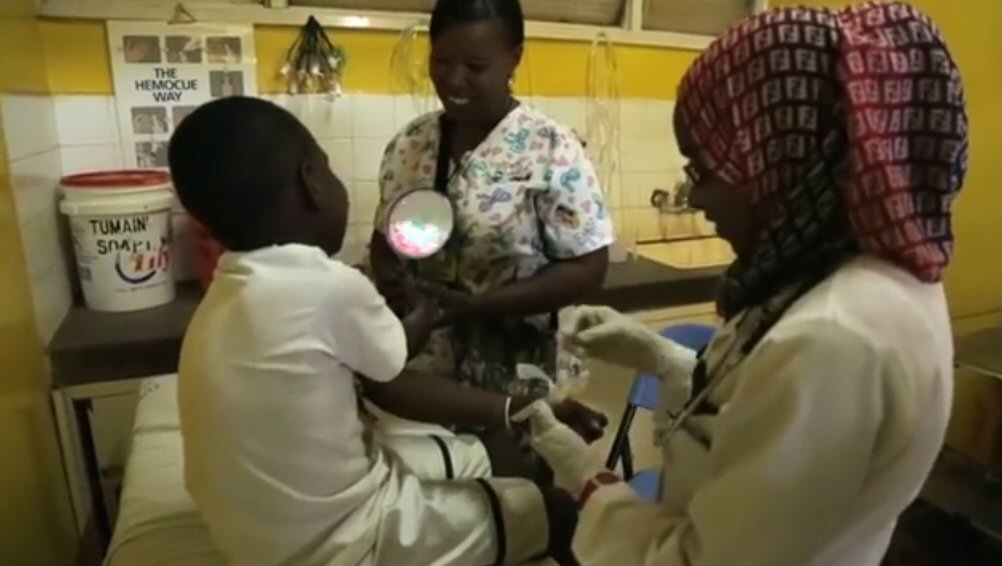
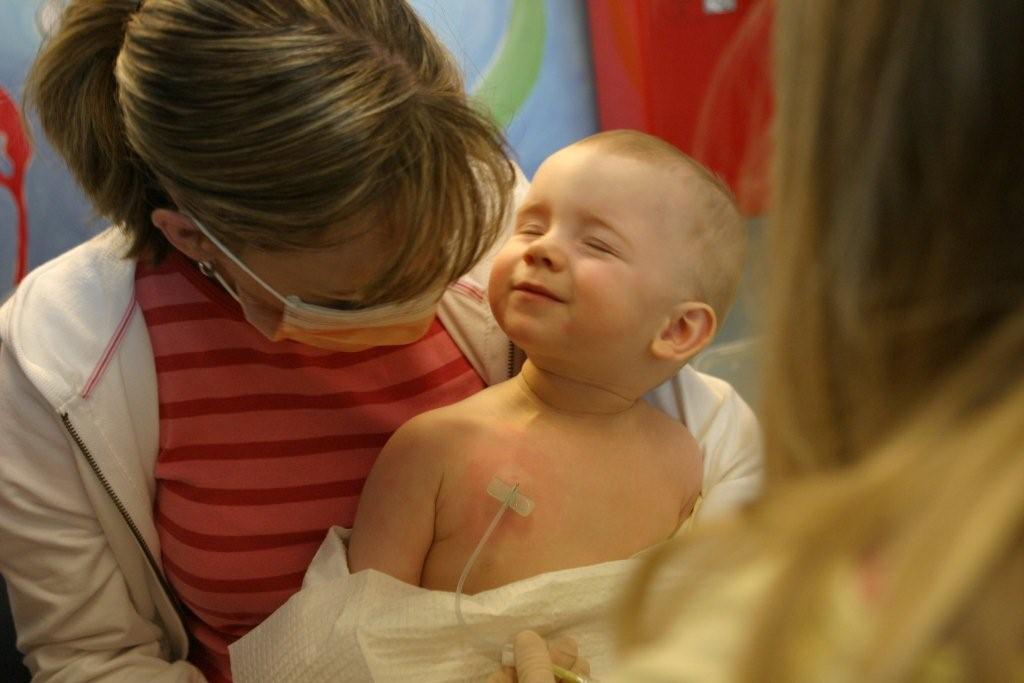
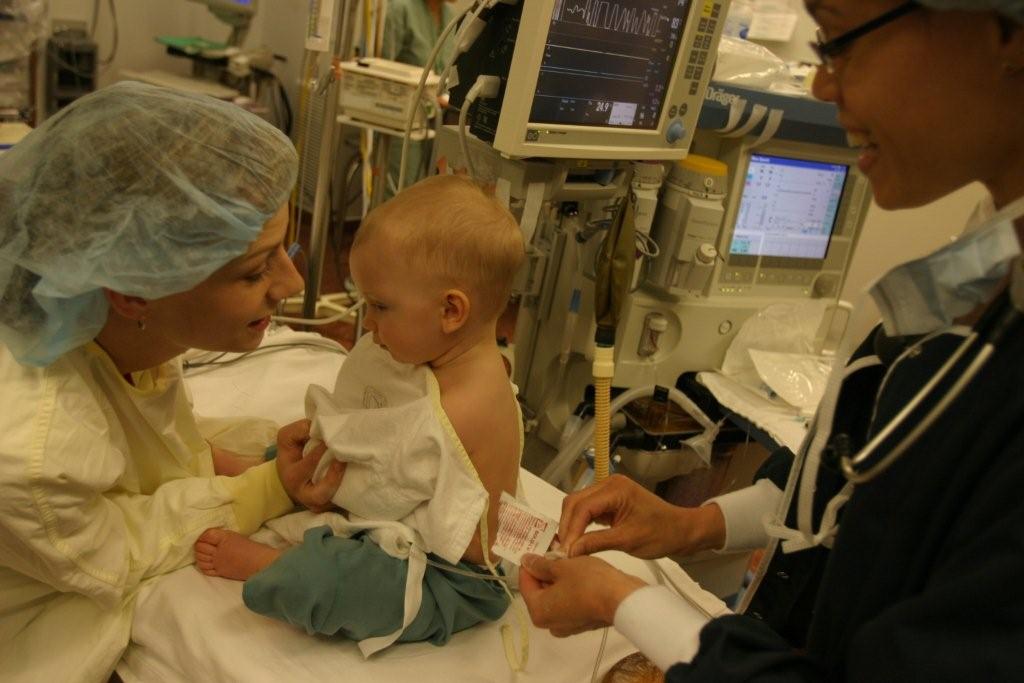
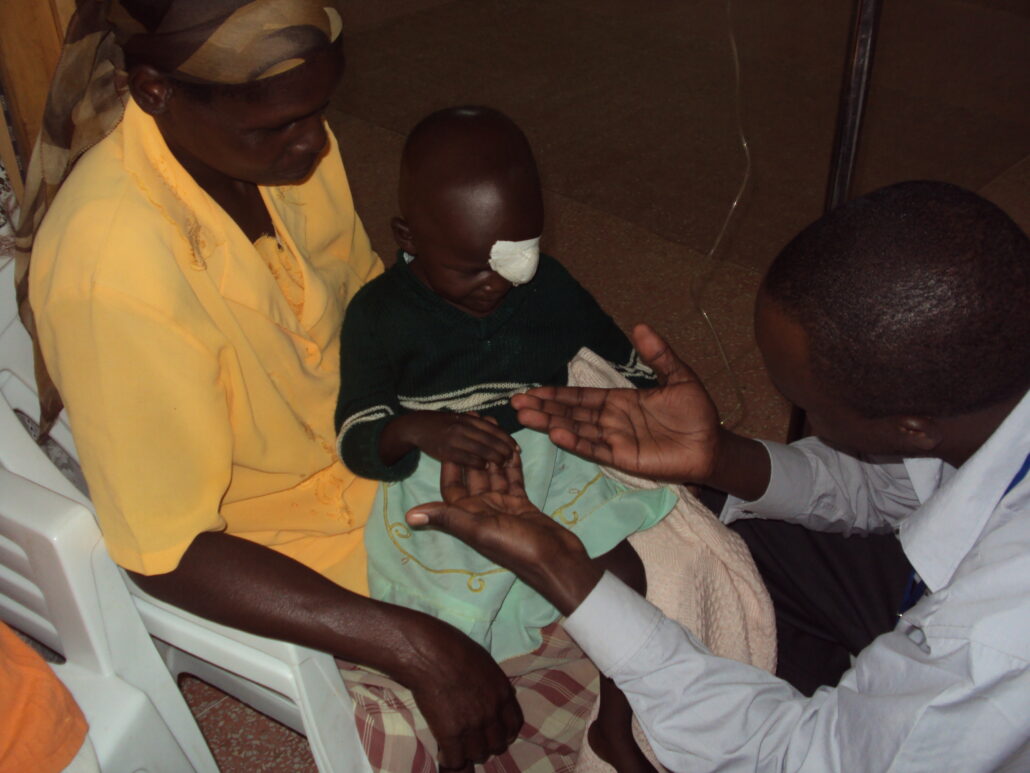
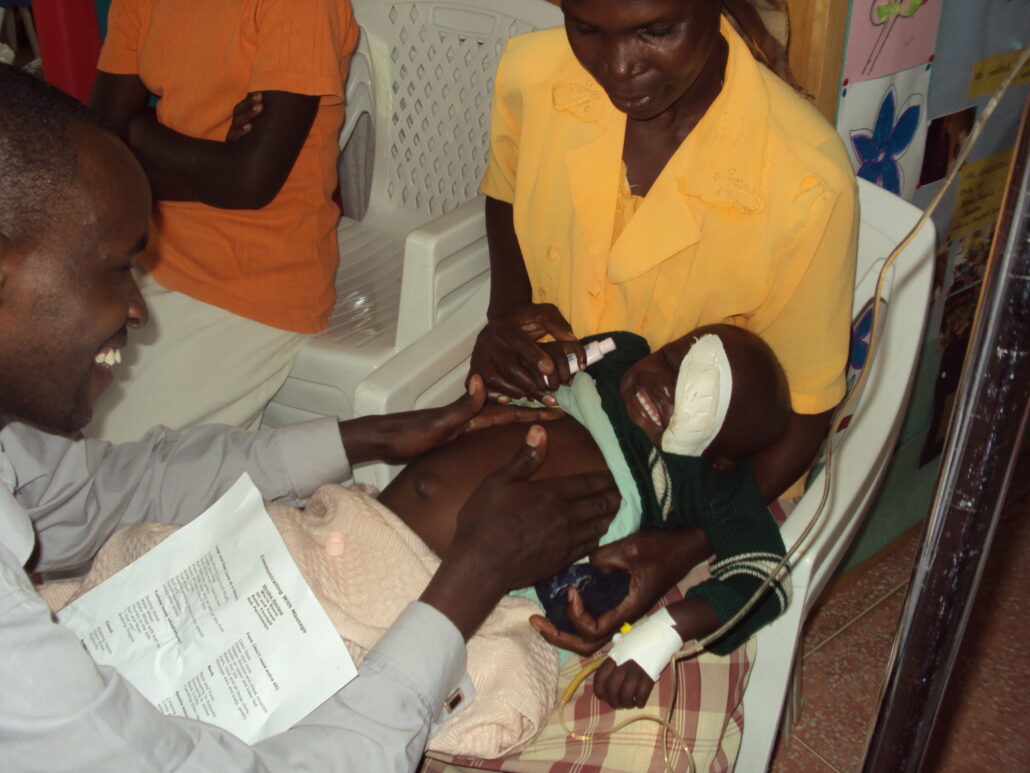
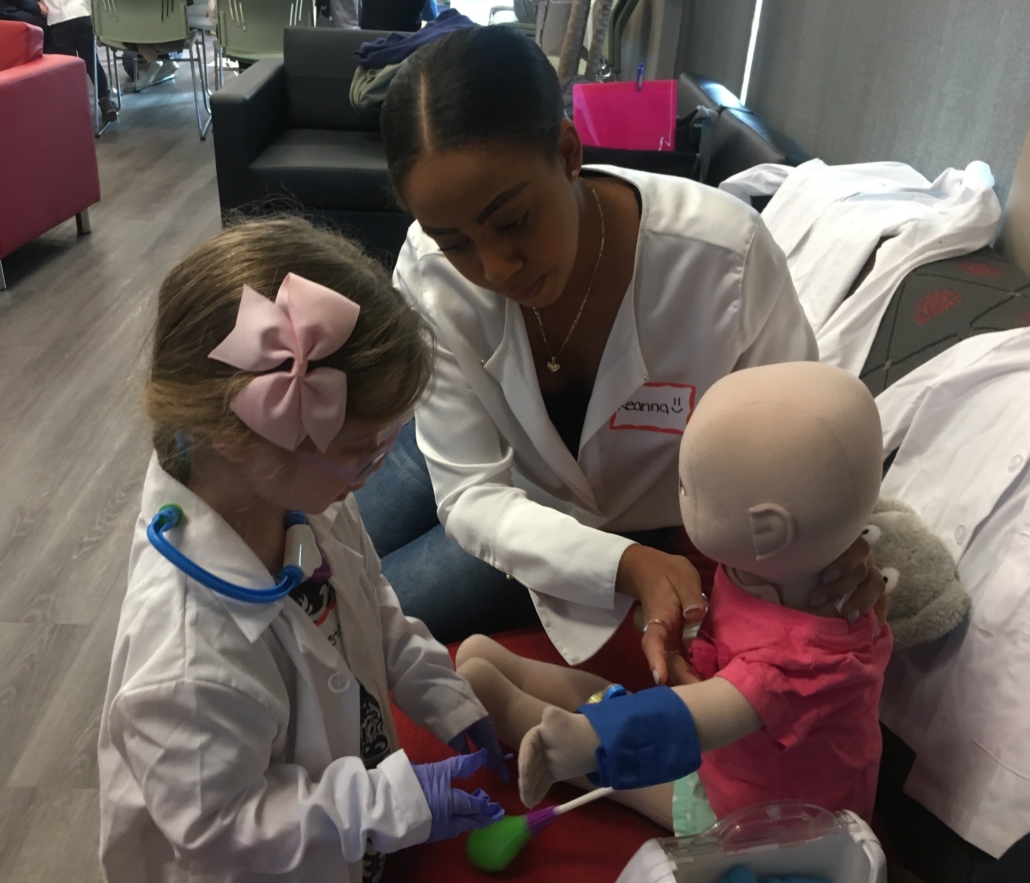
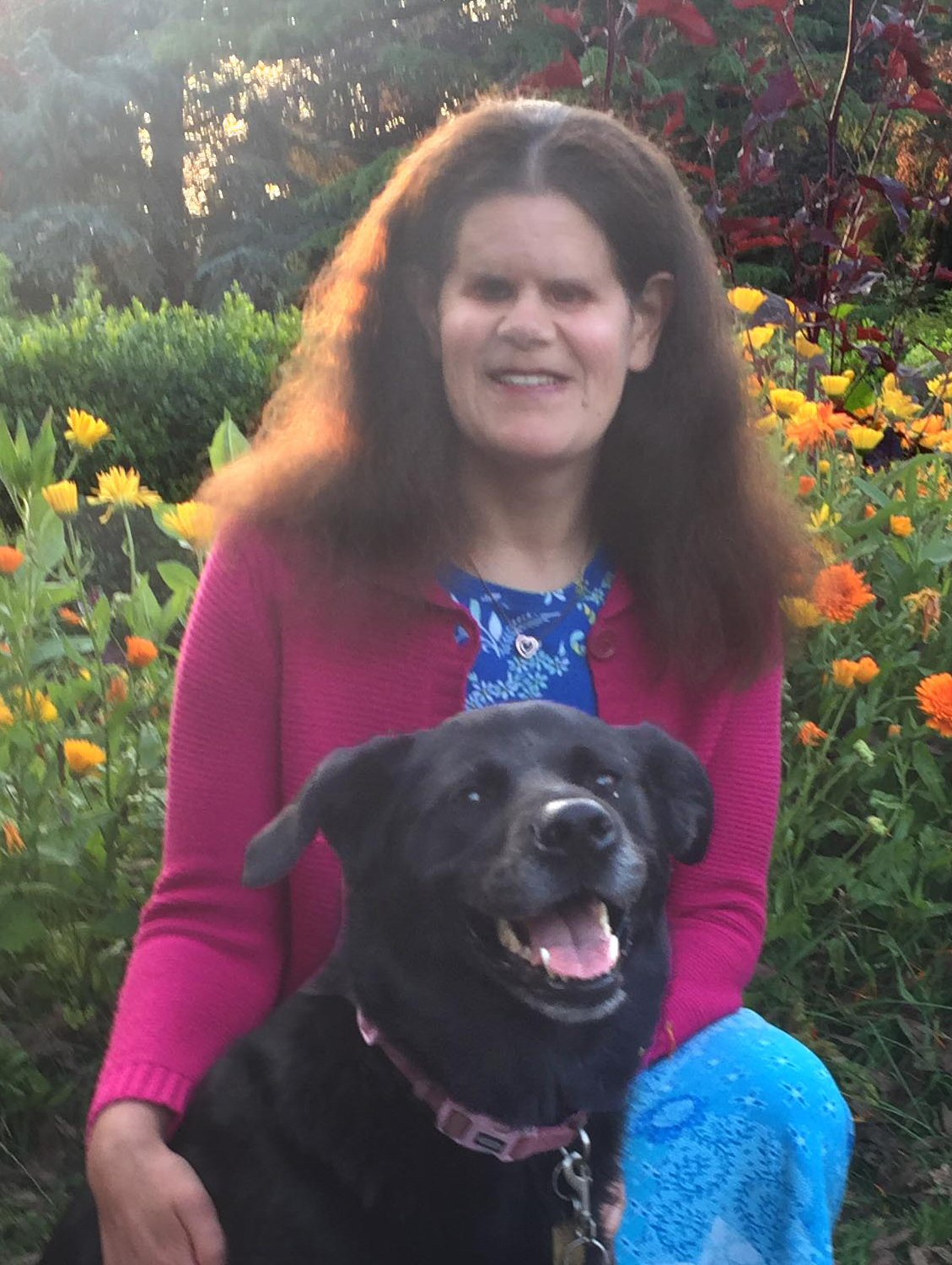


Leave a Reply
Want to join the discussion?Feel free to contribute!